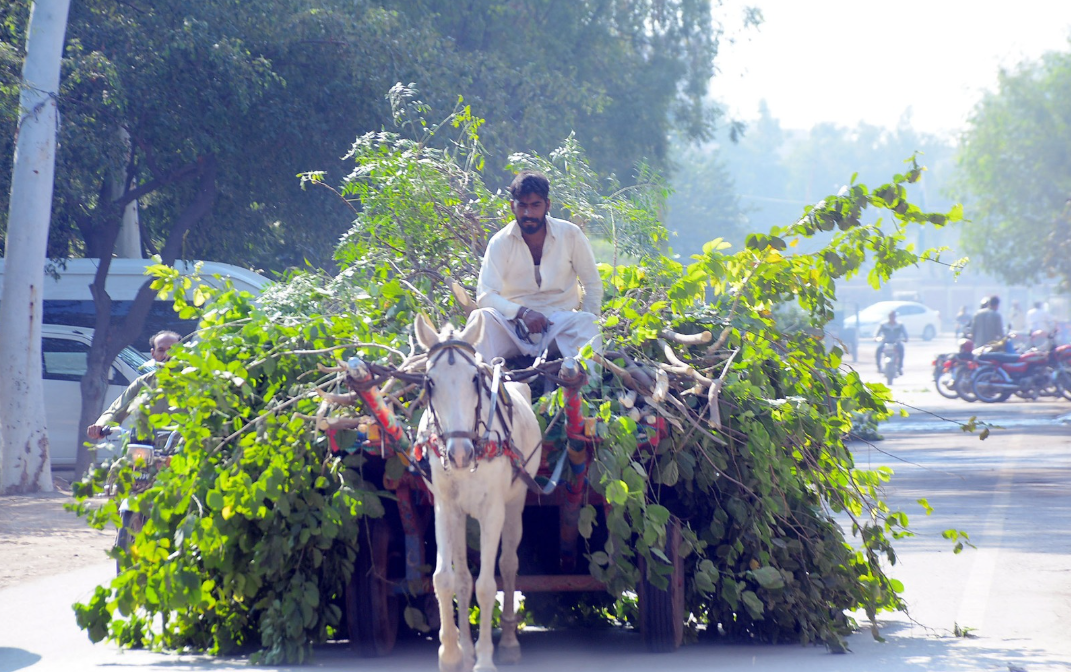Pakistan’s Soaring Utility Costs Ignite Battle For Survival
 Asem Mustafa Awan
Asem Mustafa Awan
As the Pakistani government unveils plans to raise electricity and gas tariffs, an ominous cloud of uncertainty looms over a population already grappling with the harsh realities of poverty.
Unbeknownst to policymakers, the burden placed on the public’s shoulders threatens to not only strain their financial capacities but also exacerbate the climate crisis, pushing Pakistan further into the clutches of an environmental catastrophe.
In a country where over half the population resides below the poverty line, the impending surge in utility costs is akin to a foreboding storm. The consequences, reminiscent of a tragic tale, unfold in the daily lives of those who eke out their existence on a day-to-day basis.The elderly, once industrious laborers, now find themselves in a purgatory of unemployment, their pick and spades laid to rest as symbols of a bygone era of honest toil.
Photographs from disparate corners of Pakistan paint a poignant portrait of the economic struggle. At various intersections, laborers clutching tools sit in anticipation, their empty stomachs attesting to the dire circumstances. Willing to work for a pittance and a meal, their collective plea for employment remains largely unanswered, a stark contrast to the claims of prosperity touted by authorities.
Amidst the turmoil, the resilience of the Pakistani people stands out, a testament to a shared national spirit. The harsh reality, however, is that such sentiments do not resonate with policymakers, seemingly oblivious to the plight of millions.The unchecked inflation and skyrocketing prices have transformed survival into an arduous task for the masses.
Against this backdrop, the photographs captured from different regions of Pakistan serve as a clarion call to policymakers.
As winter approaches, a season that historically brings floods and devastations after, the vulnerability of the population is laid bare. With electricity and gas tariffs rendering these basic utilities unaffordable, citizens resort to gathering firewood—a desperate measure to stave off the cold and stay alive.
The government’s call for alternative energy solutions, such as solar panels and UPS units, is a testament to its failure to meet the nation’s power demands.
However, these alternatives come at a cost, and the profiteering witnessed in the import of solar panels mirrors the exploitation observed during the initial wave of the COVID-19 pandemic.
In essence, the story encapsulates a nation at the crossroads, grappling not only with economic hardships but also with the fallout of policies that seem disconnected from the ground realities.
As the struggle for survival intensifies, it remains to be seen whether policymakers will heed the alarm bells echoing through the nation or persist in their course of pushing millions into the abyss of poverty.
The writer is a journalist based in Islamabad and writes on a wide range of issues.
Photo Credit: Sohail Shahzad & Online

Comments are closed.